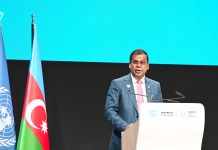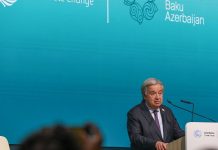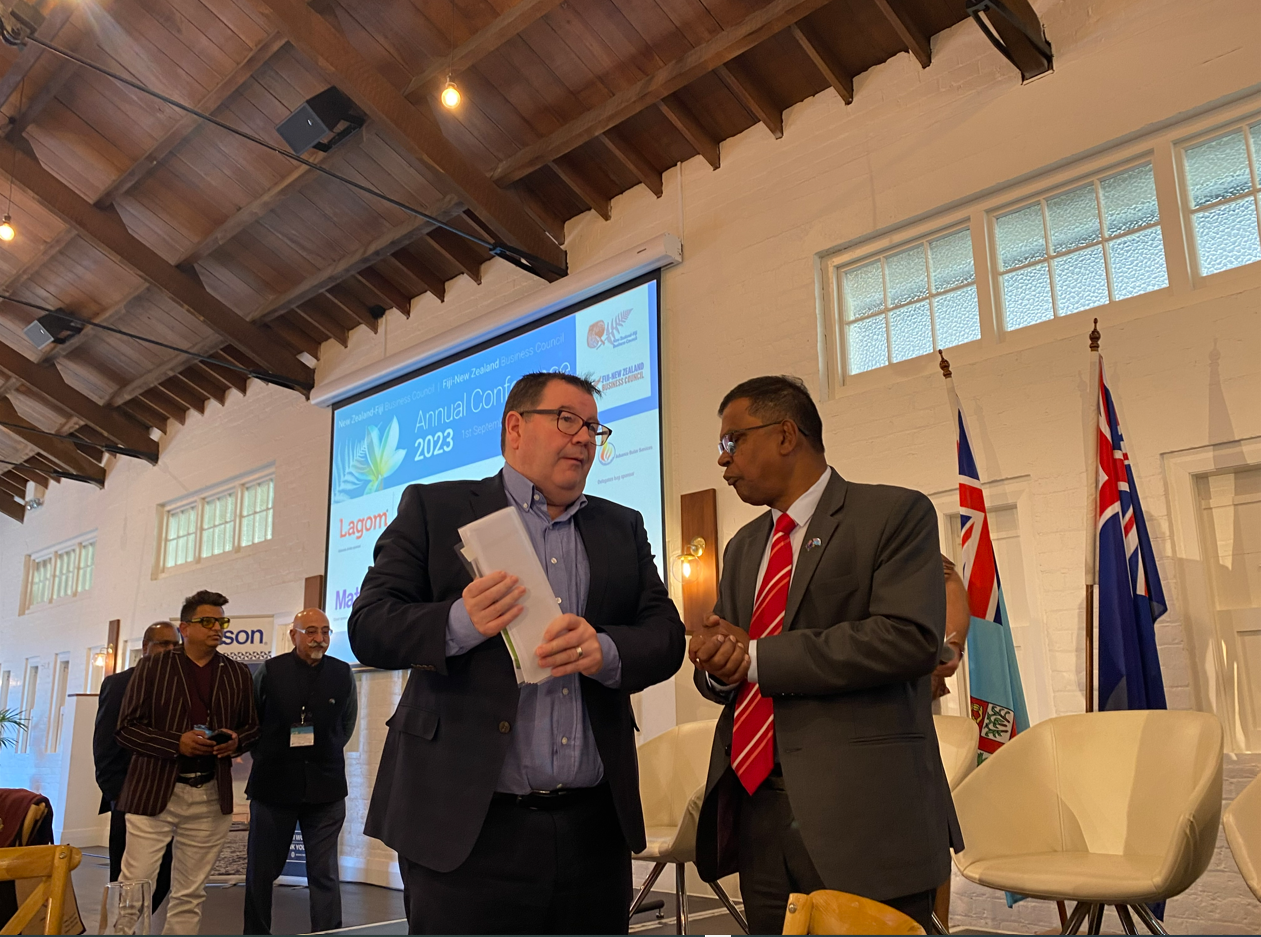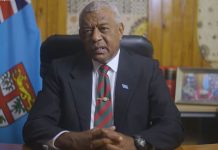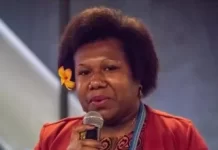Fiji’s Deputy Prime Minister Biman Prasad says a visa-free travel agreement between his country and New Zealand would help both economies which are “underperforming” in trade relations.
Prasad and Finance Minister Grant Robertson spoke at this year’s Fiji-New Zealand Business Council conference, the first under Fiji’s new coalition Government led by Prime Minister Sitiveni Rabuka.
Prasad said visa-free travel arrangements between NZ and Fiji are the “surest way” to ease trade and deal with labour shortages in both countries.
“I know the NZ workforce is losing people and Fiji is losing a lot of people as well,” Prasad said.
He said for both countries to support each other in education and trade, “New Zealanders and Fijians should be able to travel and work in each other’s countries”.
“A fully visa-free regime between our countries will be the start of a new chapter,” Prasad said.
Robertson said addressing climate change, cybersecurity and geopolitical tensions is necessary for the trade relationship, as well as improving trade policy, national labour shortages and inflation.
“We live in a world where a lot of people are doing it tough. A lot of our communities have had a very challenging period through Covid and have faced economic conditions since then that have been difficult for businesses and difficult for households. But I remain optimistic about Aotearoa New Zealand as a resilient place,” Robertson said.
Prasad said almost 250,000 New Zealanders visit Fiji each year while more than 70,000 Fijians live in NZ, which creates opportunities including manufacturing, research and development, climate change science and IT.
“We want Fiji and New Zealand’s relationship to be one of limitless possibilities for New Zealand businesses, New Zealand investors, New Zealand tourists, and for young New Zealanders,” Prasad said.
“We desire equally the same level of limitless possibilities for Fijian businesses, Fijian investors, Fijian visitors, Fijian boys and girls.”
Prasad said with NZ as Fiji’s fourth largest trading partner and Fiji as NZ’s 20th largest, both groups were not doing enough to capitalise on trade partnerships.
“Slow and incremental change will not cut it, in my view. We want to work with NZ to do everything within our reach to remove barriers in the way of our businesses.”
Prasad said the country’s newest budget “sets very clearly and unambiguously a direction to promote two-way partnership with New Zealand across all sectors of our economies”.
The Fijian Government expects two-way trade between NZ and Fiji to exceed $1.5 billion to $2b (US$750 million – US$1 billion) by 2030.
Prasad said the island nation is offering “generous tax incentives” to New Zealand businesses looking for low-cost manufacturing.
“There is absolutely no reason for New Zealand businesses to be outsourcing business support operations to distant and perhaps even more risky areas in some parts of Asia,” he said.
“Fiji is on your doorstep. It has one of the best-trained workforces, IT infrastructure that actually matches New Zealand’s gigabyte by gigabyte.”
For Kiwi businesses in agriculture, Prasad reiterated Fiji’s diverse opportunities: “Fiji’s agriculture sector is ready to absorb New Zealand technology and investments to meet New Zealand demand for a wide range of agricultural products.”
Prasad proposed a removal of all visa restrictions between the two countries to help ease trade and build stronger ties with NZ.
Climate change was at the forefront of the event as a major influence on people and trade in the Pacific, lifting the costs of food and infrastructure, however Prasad said it also presents new opportunities for businesses and policymakers.
“Nothing will make Pacific Islanders happier than to see New Zealand companies working with ours to provide a renewable energy revolution across the country,” he said
“Nothing will make me happier than to see New Zealand companies working with us, creating opportunities and livelihoods across the Blue Pacific and across the blue economy.”
He said climate change is moving rapidly through the Pacific, now threatening “a near collapse of fisheries and food systems”.
“In my view, we have the opportunity to fundamentally transform our approach to climate change,” Prasad told Robertson.
Fiji’s Deputy PM also laid out his wishes to work with Kiwi research institutions to help educate and train the future workforce of both nations.
“We can create opportunities for our young people on an industrial scale as ocean scientists, oceanographers, nature-based solutions experts, coral reef ecologists, circular economy experts, renewable energy engineers, and agriculture adaptation specialists,” Prasad said.
“I believe nothing will forge a deeper partnership than our young New Zealanders and Fijians, especially young Kiwis and Fijians working together on the greatest challenges of our times,” said Prasad.
SOURCE: NZ HERALD/PACNEWS



